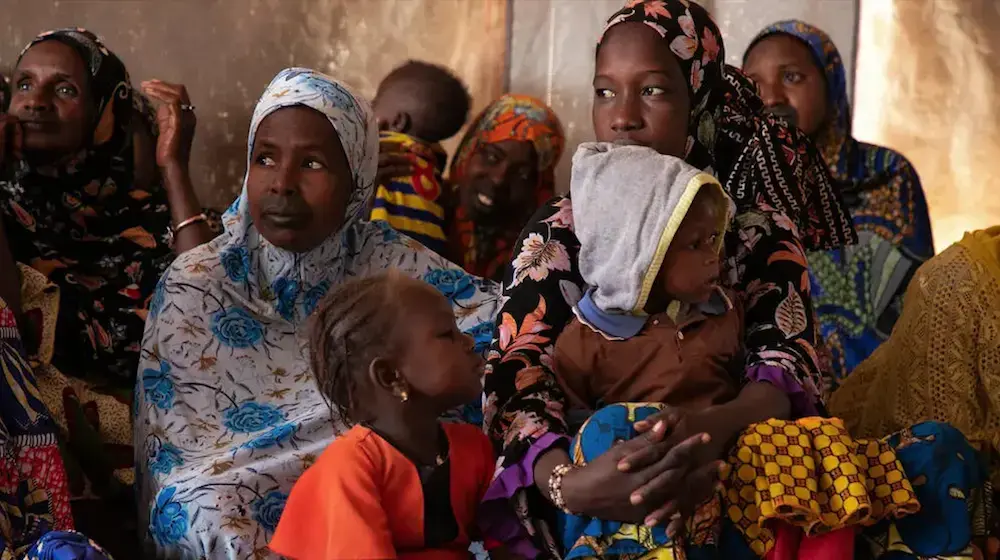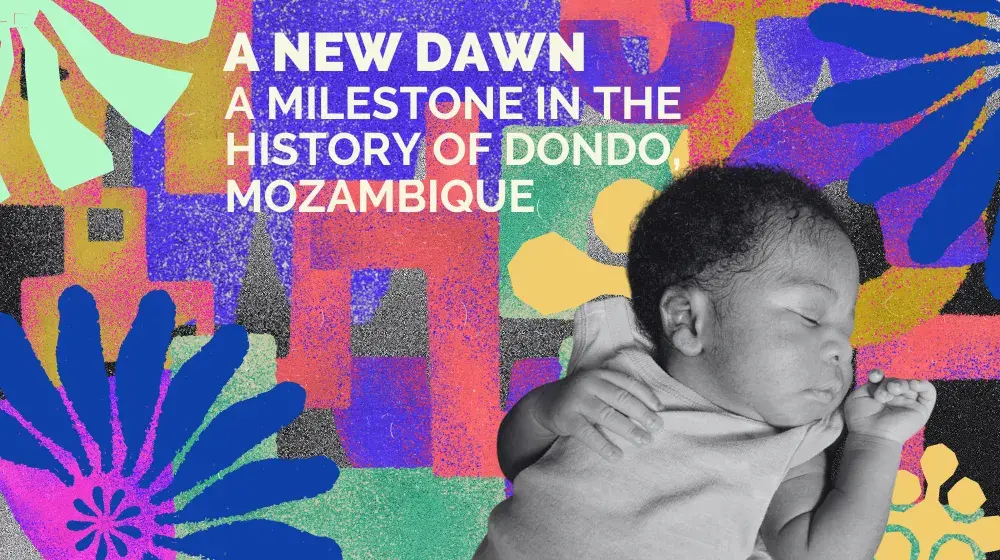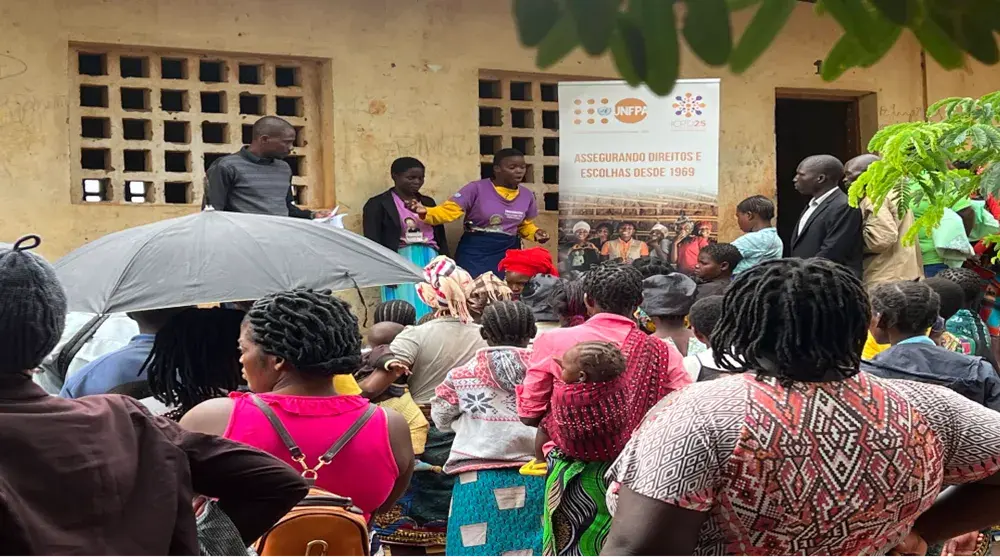From serving the women of their own country… to serving the world. Two young African midwifery leaders – from Burkina Faso and Chad – passionately apply their skills and energy to improve the lives of vulnerable women and girls affected by natural disaster and humanitarian crisis in Mozambique. Members of UNFPA’s humanitarian surge team in Sofala, Mozambique, both young women were deployed to bolster UNFPA Mozambique’s response to Cyclone Idai which affected 1.85 million people in central Mozambique, causing more than 600 deaths and damaging houses and health facilities.
Sabine Nana (of Burkina Faso) trains newly recruited maternal and child health nurses (midwives) in lifesaving skills in labour and delivery and also helps set up temporary maternity & sexual and reproductive health (SRH) units at the worst-affected health facilities in areas devastated by the cyclone. An experienced humanitarian, she began her career with the Ministry of Health in Burkina Faso and then went on to serve with Medecins Sans Frontieres in the Rohingya refugee camps in Bangladesh, as well as in the DRC, Haiti, and Mauritania. An expert in sexual and reproductive health and rights (SRHR), maternal and newborn health, and sexual and gender-based violence (SGBV), she is now serving as SRH technical specialist and UNFPA’s lead trainer on Clinical Management of Rape.
The dynamic, determined, energetic, and ever-positive Sabine says of her humanitarian surge experience in Mozambique:
“I arrived a few weeks after Cyclone Idai struck. The earth had begun to dry but the people’s tears continued to fall. People have lost their loved ones, their property, and their memories. Women, children, and adolescents live in a precarious situation of lack of access to quality health services. I am, therefore, committed to this response to help prevent unwanted pregnancies, to help women gain access to a health center and skilled birth attendants, and to have medical treatment and psychosocial support in case of violence. As a midwife, I am really proud to run those community activities in remote areas of Nhamantanda, Buzi, and Dondo, which were devastated by the cyclone.”
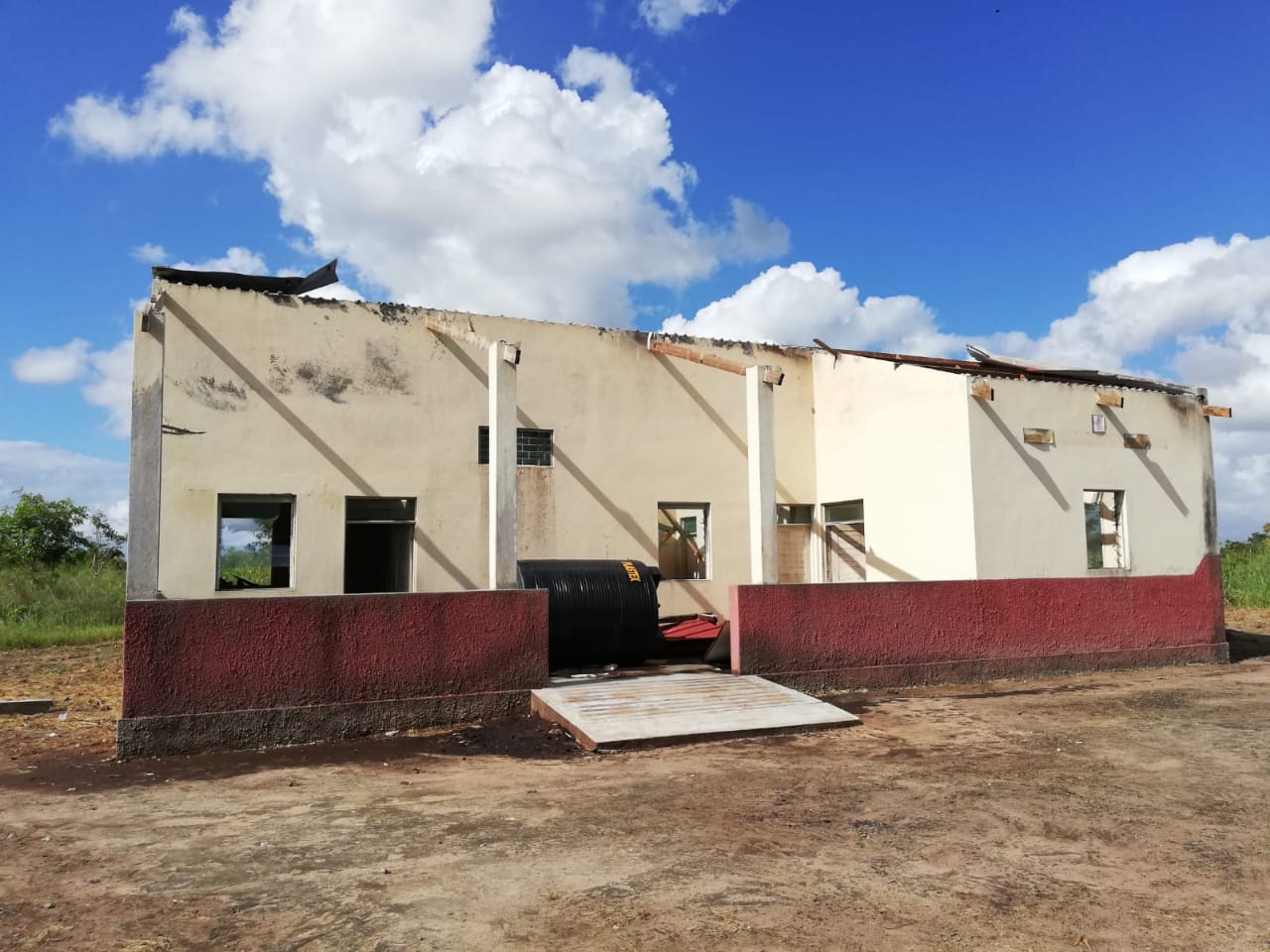
In the morning, Sabine starts her field visits to Bandua and Buzi district, 400 km from the capital city, Beira. She leaves early in the morning with a dedicated team to erect SRH tents and accommodation for the midwife who lost her house but keeps working in a roofless health center. Floods removed all medical equipment and medicines. UNFPA’s objective is to reach remote areas, install and equip tents (to be used as temporary maternity & SRH clinics), provide medicines through specialized reproductive health (RH) kits, and deploy a trained and skilled midwife in this temporary SRH tent. The “typical” day in Beira look like a surge training simulation (very intense and tough!), but the difference is that, in Beira, it’s not a simulation; we are responding to a real emergency. UNFPA invested a lot to train and prepare surge team members and this helps a lot to integrate and adapt ourselves to any emergency situation, Sabine reflects.
“My everyday motivation is based on the teamwork,” says Sabine. “I am lucky to have an amazing supervisor and a nice smiling head of program. I have support from others and I give what I have to help others. The work is still a lot, and there is still a long way to go, but we will succeed together.”
When asked what inspired her to become a midwife, Sabine recounts: “When I was a little girl, my mother used to spend the whole day and night in the health facility with a woman in labour. And when she came back home, she was always happy and she said “the mother and the baby are healthy”. She worked too hard because she was alone doing deliveries for a big village where family planning use was not common. When I finished my studies, I wanted to work as a midwife… especially to improve the use of family planning. It was a way for me to help my mom have fewer deliveries to do, a way to help young girls escape unwanted pregnancy and continue their studies….”
“But finally, I found that being a midwife is more than that. After every single delivery, I am so happy to make the announcement to the family and enjoy how they celebrate this. I realize that helping a mother give birth and stay alive is a great mission for me and, doing this in an emergency setting is even more gratifying and helpful for the affected population. At least I know I am not a burden, I am useful for the society and this keeps me more engaged and inspired as a midwife.”
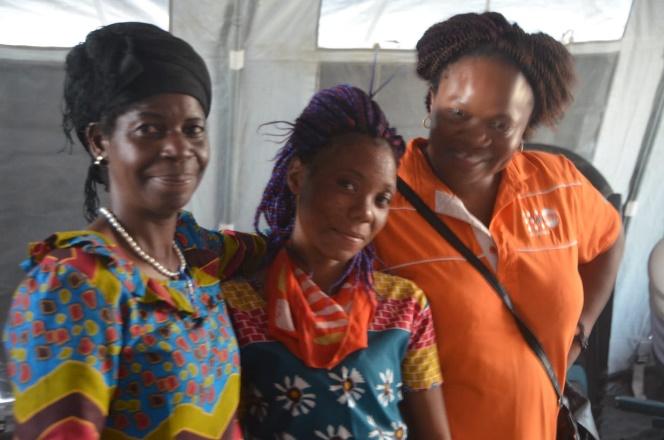
Felicite Ramadji (of Chad) mobilizes & sensitizes communities to protect women’s and girls’ dignity, well-being, & rights, and to prevent sexual & gender-based violence. Her gentle, soft-spoken nature and kind smile have a way of making people feel at ease. She is a key member of the SGBV team in Beira, working in collaboration with the Mozambican government and partners, to ensure access to timely and high-quality life-saving Sexual and Reproductive Health and Rights (SRHR), including those outlined in the global inter-agency Minimum Initial Service Package (MISP) for Reproductive Health in Emergencies that includes the availability of comprehensive services for pregnancy-related complications and sexual and gender-based violence, as well as HIV/STI prevention and treatment.
Felicite contributes to UNFPA’s co-leadership of the Protection Cluster and leadership of the GBV sub-cluster to ensure the prevention of Gender-Based Violence and access to care and services for survivors. In close collaboration with the government and key partners, UNFPA has helped establish referral pathways for GBV survivors locally. Felicite has also supported the implementation in the field of UNFPA-supported Women-Safe Spaces (WSS) and distribution of dignity kits, along with education and awareness raising at the community level on SRH and GBV issues.
Erin Anastasi and Sabine Nana


